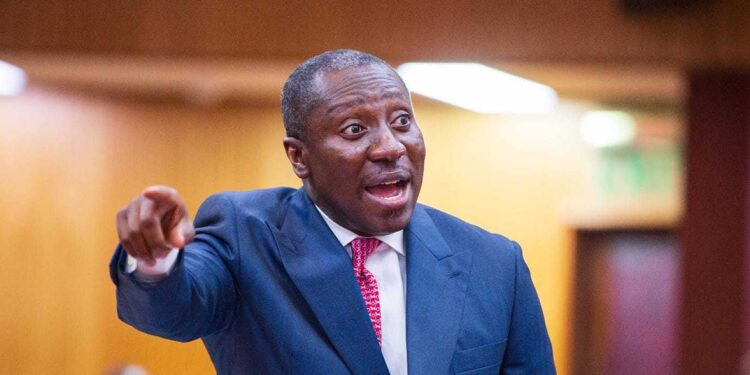The Minority Caucus in Parliament has fiercely criticized the government for its mishandling of the Energy Sector Levies (Amendment) Act, 2025, popularly known as the Dumsor Levy, after the Ghana Revenue Authority (GRA) indefinitely suspended its implementation just days before its planned commencement on June 16.
In a statement released on Sunday, June 15, the Caucus accused the Mahama-led administration of adopting a “trial-and-error” approach to governance, describing the suspension as a “shameful retreat” and evidence of chaotic economic management.
“The eleventh-hour U-turn on the Dumsor Levy epitomises a lack of stakeholder engagement and exposes the government’s economic inconsistency,” the Minority stated.
The levy, which aimed to stabilize Ghana’s energy sector and address legacy debts, has faced widespread criticism from both citizens and the opposition, who argue that it adds an unnecessary burden during a time of economic hardship. The Minority dismissed the government’s justification with global crude oil price volatility due to the Israel-Iran conflict as hypocritical and dishonest.
“This administration condemned the previous government for citing global events as excuses, yet it now uses the same reasoning to explain its policy confusion,” the statement said.
The Minority has called for an emergency Parliamentary session to repeal the levy entirely, asserting that postponement is not enough. “At a time when Ghanaians are struggling with the high cost of living, adding fuel taxes is economically reckless and morally indefensible,” the Caucus argued.
They also rejected claims that the levy is necessary for resolving Ghana’s energy challenges, blaming poor management and operational inefficiencies at ECG, as well as the abandonment of previous loss-reduction initiatives, for the sector’s woes.
“We reject the notion that the absence of this levy is the cause of Ghana’s energy crisis. It is a direct result of mismanagement and poor leadership,” they added.
The Minority concluded by urging the government to fulfill its electoral promise of easing economic burdens, vowing to resist any further attempts to introduce “regressive fiscal policies” that exacerbate the struggles of Ghanaians.
















